News
POTENTIAL INACCURACIES OF ASSESSING TEMPERATURE TRENDS
Over the years, a large number of potential problems associated with various ways of assessing the temperatures of diverse types of land cover have been identified; and several of them are briefly described, with an emphasis on demonstrating the great difficulty of obtaining various surface-specific sets of annual near-surface air temperature which - when combined for the earth as a whole - yield a set of yearly mean values that accurately represents the mean nearsurface thermal history of the planet well enough to determine whether or not the earth may be warming at the rate that is typically predicted by climate model assessments of the greenhouse effect of the CO2 emitted to the atmosphere as a consequence of mankind's utilization of fossil fuels, such as coal, gas and oil.
First of all, there are a number of mundane difficulties that are encountered in the course of obtaining numerous histories of accurate surface air temperature measurements and assembling them into an aggregate history of global climate change. These problems include (1) temporal changes in microclimate surrounding temperature measurement sites, such as urbanization, which often go unrecognized or for which insufficient adjustments are made, (2) long-term degradation of the shelters that house the temperature-measuring equipment, such as the shelters' white paint becoming less reflective and their louvers partially obstructed, (3) changes in what is actually being measured, such as true daily maximum and minimum temperatures or temperatures at specified times of day, (4) changes in measurement devices and ways of accessing the data, such as changing from having to open the shelter door to read the temperature, as was done in earlier days, to not having to do so, due to the automatic recording of the data, as has become commonplace in more recent times, (5) general station degradation and many station closures over time, (6) the changing and uneven geographical representation of the surface temperature network, (7) poor attention to careful acquisition of data in many parts of the world, and (8) a number of problems associated with obtaining a correct and geographically complete record of surface air temperature over the 70% of the globe that is covered by oceans. In this summary, however, a group of more esoteric problems will be discussed.
Correia and Safanda (1999) reviewed a set of twenty temperature logs derived from boreholes located at fourteen different sites in mainland Portugal in an attempt to reconstruct a fivecentury surface air temperature history for that part of the world; but little did they realize how difficult the task would be. For starters, seven of the borehole temperature logs were too "noisy" to use; while six displayed evidence of groundwater perturbations and were thus not usable for that reason. Of the remaining seven logs, all depicted little temperature change over the first three centuries of record. Thereafter, however, four of them exhibited warming trends that began about 1800 and peaked around 1940, one showed a warming that peaked in the mid-1800s, another was constant across the entire five centuries, and one actually revealed cooling over the last century. And at this point in time, the two researchers concluded that "the single inversions cannot be interpreted individually."
More News
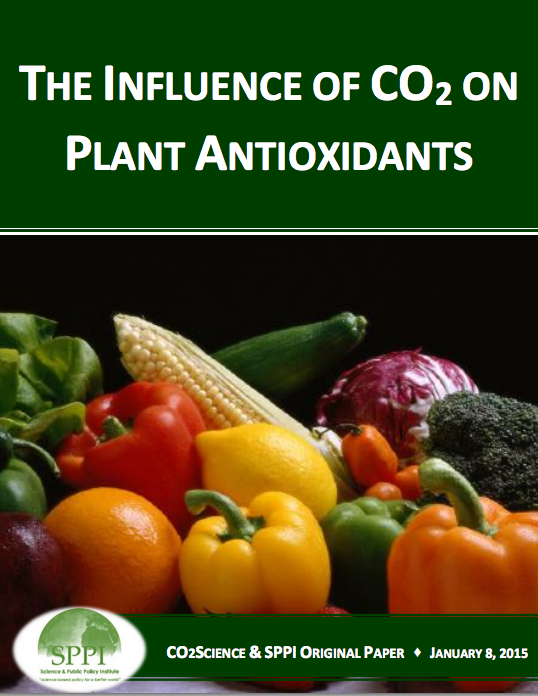
The Influence of CO2 on Plant Antioxidants
Center for the Study of Carbon Dioxide and Global Change. "The Influence of CO2 on Plant Antioxidants.” Last modified January 8, 2015. http://www.co2science.org/subject/a/summaries/antioxidants.php.
Released On: 1/16/2015
Views: 6489
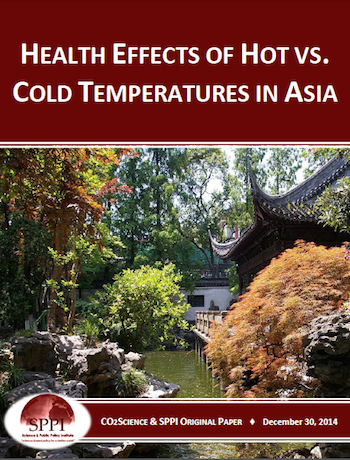
Health Effects of Hot Vs Cold Temperatures in Asia
Health Effects of Hot Vs Cold Temperatures in Asia.
Released On: 1/5/2015
Views: 6722
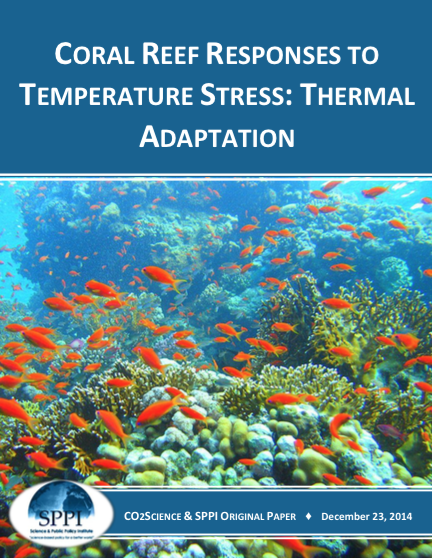
Coral Reef Responses to Temperature Stress: Thermal Adaptation
Coral Reef Responses to Temperature Stress: Thermal Adaptation. As living entities, corals are not only acted upon by the various elements of their environment,they also react or respond to them.
Released On: 12/29/2014
Views: 6356

Forest Growth Response to CO2
Forest Growth Response to CO2. By examining various properties of tree rings, researchers can deduce how historical increases in the air's CO2 concentration have already affected tree productivity and water use efficiency.
Released On: 12/29/2014
Views: 4980

Onward Marches the Great Pause
Onward Marches the Great Pause. Since October 1996 there has been no global warming at all (Fig. 1).
Released On: 12/29/2014
Views: 4024

RESPONSE OF VARIOUS MARINE ANIMALS TO OCEAN ACIDIFICATION AND WARMING
RESPONSE OF VARIOUS MARINE ANIMALS TO OCEAN ACIDIFICATION AND WARMING.
Released On: 12/8/2014
Views: 3681

FACE EXPERIMENTS AND GRASSLAND SPECIES
FACE EXPERIMENTS AND GRASSLAND SPECIES.
Released On: 12/8/2014
Views: 4255

EFFECTS OF OCEAN ACIDIFICATION ON FISH
EFFECTS OF OCEAN ACIDIFICATION ON FISH.
Released On: 12/8/2014
Views: 4271

Response of Fish to Ocean Warming
Response of Fish to Ocean Warming. According to the IPCC, CO2-induced global warming will be net harmful to the world's marine species.
Released On: 11/21/2014
Views: 4182

Long-Term Open-Top-Chamber Study of Sour Orange Trees
Long-Term Open-Top-Chamber Study of Sour Orange Trees. Eight 30-cm-tall sour orange tree (Citrus aurantium L.) seedlings were planted directly into the ground at the Agricultural Research Service's U.S. Water Conservation Laboratory in Phoenix, A ...
Released On: 11/21/2014
Views: 4209
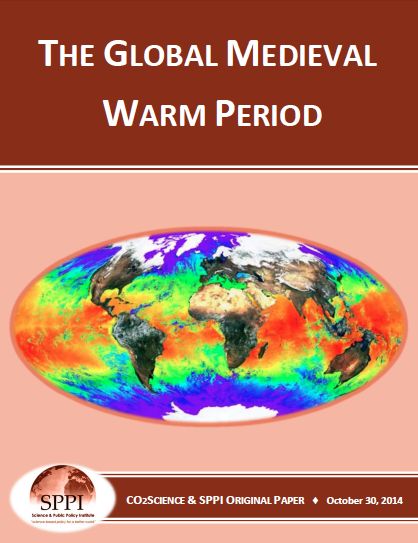
The Global Medieval Warm Period
The Global Medieval Warm Period. Between the 10th and 14th centuries AD, earth's average global temperature may have been warmer than it is today.
Released On: 11/21/2014
Views: 4023
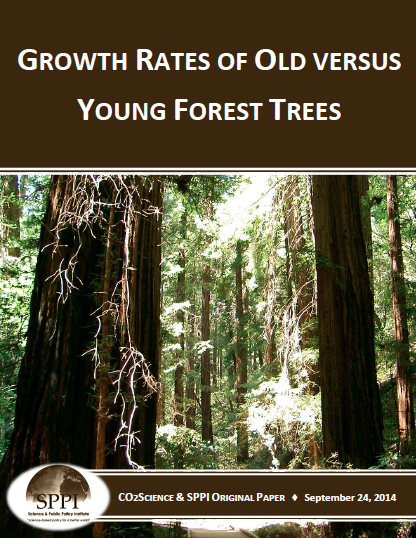
Growth Rates of Old versus Young Forest Trees
Growth Rates of Old versus Young Forest Trees. The planting and preservation of forests has long been acknowledged to be an effective and environmentally-friendly means for slowing climate-model-predicted CO2-induced global warming.
Released On: 9/30/2014
Views: 4285
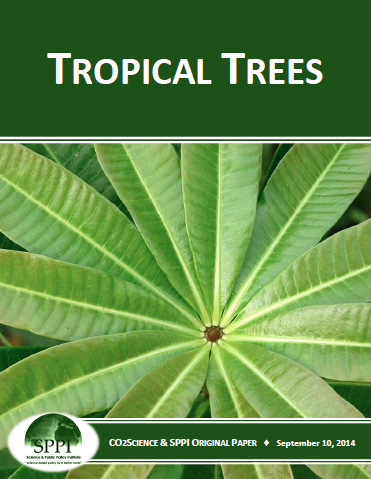
Tropical Trees
Citation: Center for the Study of Carbon Dioxide and Global Change. "Tropical Trees.”
Released On: 9/30/2014
Views: 4351
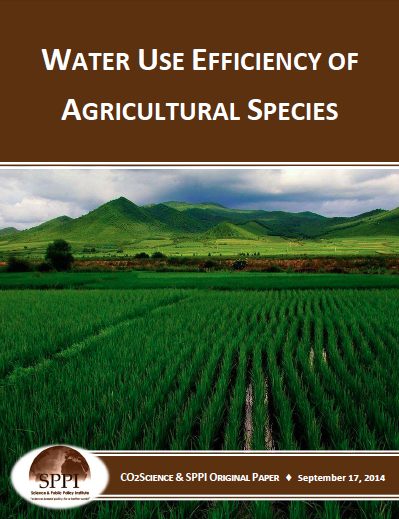
Water Use Efficiency of Agricultural Species
Water Use Efficiency of Agricultural Species.
Released On: 9/30/2014
Views: 4235
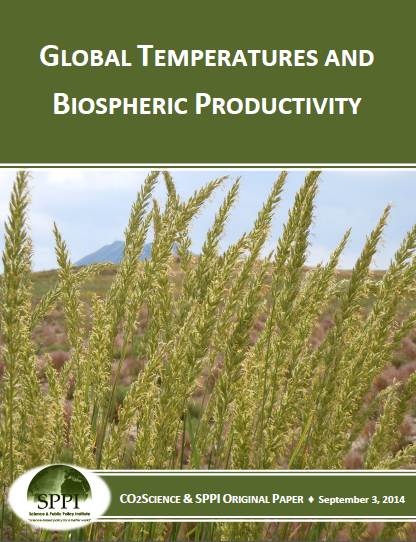
GLOBAL TEMPERATURES AND BIOSPHERIC PRODUCTIVITY
Global temperatures and biospheric productivity. Among the many climate-alarmist fears of CO2-induced global warming is the concern that the productivity of the biosphere will decline if global temperatures rise to the extent predicted by compute ...
Released On: 9/13/2014
Views: 4216
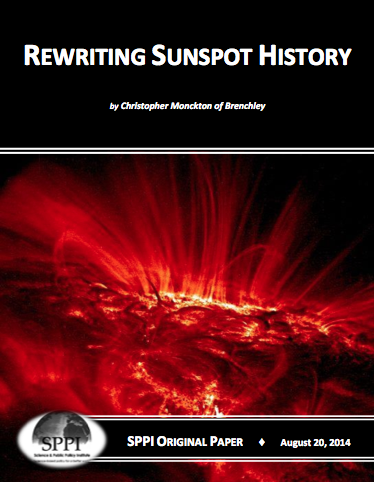
REWRITING SUNSPOT HISTORY
Rewriting sunspot history. In 2006, when I first made the mistake of writing publicly of my doubts about the Party Line on manmade global warming.
Released On: 9/13/2014
Views: 4278
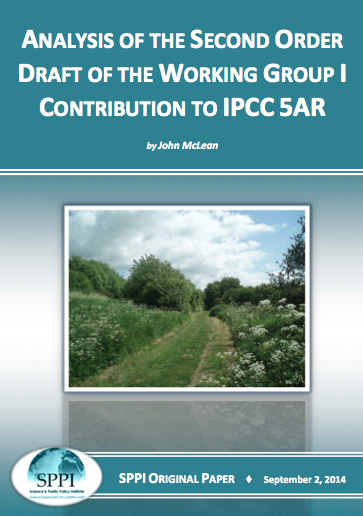
ANALYSIS OF THE SECOND ORDER DRAFT OF THE WORKING GROUP I CONTRIBUTION TO IPCC 5AR
ANALYSIS OF THE SECOND ORDER DRAFT OF THE WORKING GROUP I CONTRIBUTION TO IPCC 5AR. The preparation of IPCC Assessment Reports involves several stages.
Released On: 9/13/2014
Views: 4103
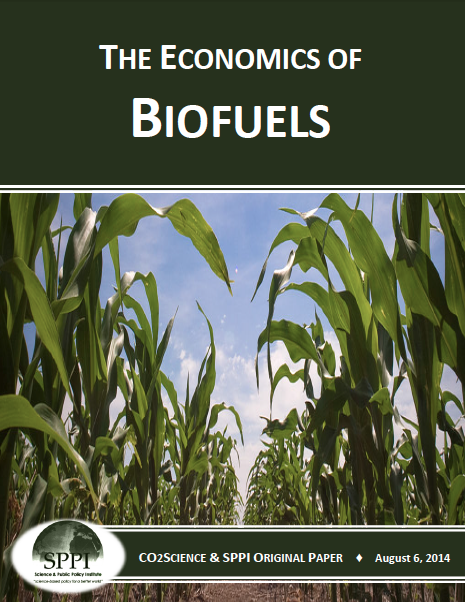
THE ECONOMICS OF BIOFUELS
The economics of biofuels. Aside from rejecting biofuel expansion and use for environmental reasons.
Released On: 9/13/2014
Views: 3939



